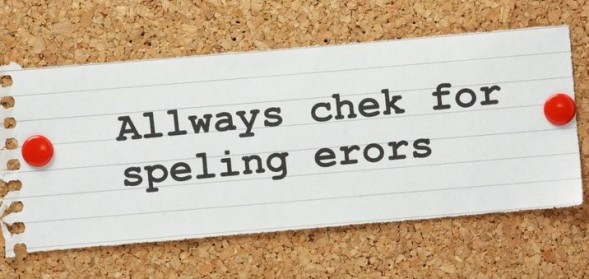
Common spelling mistakes made in IELTS
Common spelling mistakes made in IELTS
Spelling is huge concern for IELTS students. Writing scores are 25% determined by vocabulary, which includes spelling accuracy. Too many spelling mistakes can also seriously bring down your score in IELTS Listening and writing.
Part of the reason for this may be that there are so many inconsistencies in the English language. Spelling is also a big problem for many IELTS candidates – especially those who have a different alphabet in their own language.
Most misspellings or spelling errors can be categorized into groups. Here are some examples for each of those types.This list of common IELTS spelling mistakes includes some of the words most likely to appear in the test. Try to master these basic rules in order to minimise poor spelling in IELTS.
Example:
Changes of spelling when words change form
For example:
The word ‘Benefit’ becomes
incorrect: benefitial
Correct:beneficial
The word ‘Influence’ becomes
Incorrect: influencial
Correct: influential
The word ‘Circumstance’ becomes
Incorrect: circumstancial
Correct: Circumstantial
The word ‘Maintain’ becomes
Incorrect: maintainance
Correct: maintenance
The word ‘Pronounce’ becomes
Incorrect: pronounceiation
Correct: pronunciation
The word ‘Argue’ becomes
Incorrect: argument
Correct: arguement
The word ‘Occur’ becomes
Incorrect: occured
Correct: occurred
The word ‘Refer’ becomes
Incorrect: refered
Correct: referred
The word ‘Begin’ becomes
Incorrect: begining
Correct: beginning
B. Silent letters in consonant clusters
In some words some of the alphabets in the word are silent. Students often make a mistakes in spelling such words.
For example:
The silent [nm]
Incorrect: enviroment
Correct: environment
incorrect: goverment
correct: government
Incorrect: colum
correct: column
Incorrect: autum
correct: autumn
b. The silent
incorrect: concious
correct: conscious
incorrect: acend
correct: ascend
incorrect: disipline
correct:discipline
c. The silent [xc]
Incorrect: exite
correct: excite
d. The silent [g]
incorrect: privilje
correct: privilege
incorrect: oblije
correct: oblige
Exercise:
Objective: Identifying the correct spelling.
Choose the option which has the correct spelling in each question.
Which is correct?
absence
absance
absense
abcense
2. Which is correct?
achieve
acheive
acheeve
achiev
3. Which is correct?
adress
address
addres
adres
4. Which is correct?
begining
beginning
Begginning
5.Which is correct?
colleague
coleague
coleage
colleage
II. Objective: Spot the error
Instruction: Choose the wrongly spelt word in the following
She consciously/consciosly avoided talking to her boss.
It was a deliberete/deliberate mistake.
It has been/being raining since three days.
III. Objective: Correcting the spelling mistakes
These words are spelled wrong. Can you correct them?
Atack: _____________
Scratsh: _____________
Langauge : _____________
IV Objective: Correcting a paragraph
Rewrite the following paragraph by correcting all the spelling errors:
Without mayking a judgment on them, it is surprising how meny peeple spell carelesly without any acknowledgement of their mistakes; good spelling is the principle cornerstone of accessible and legable writing, make it a vitle part of study and not sumthing seperate!




